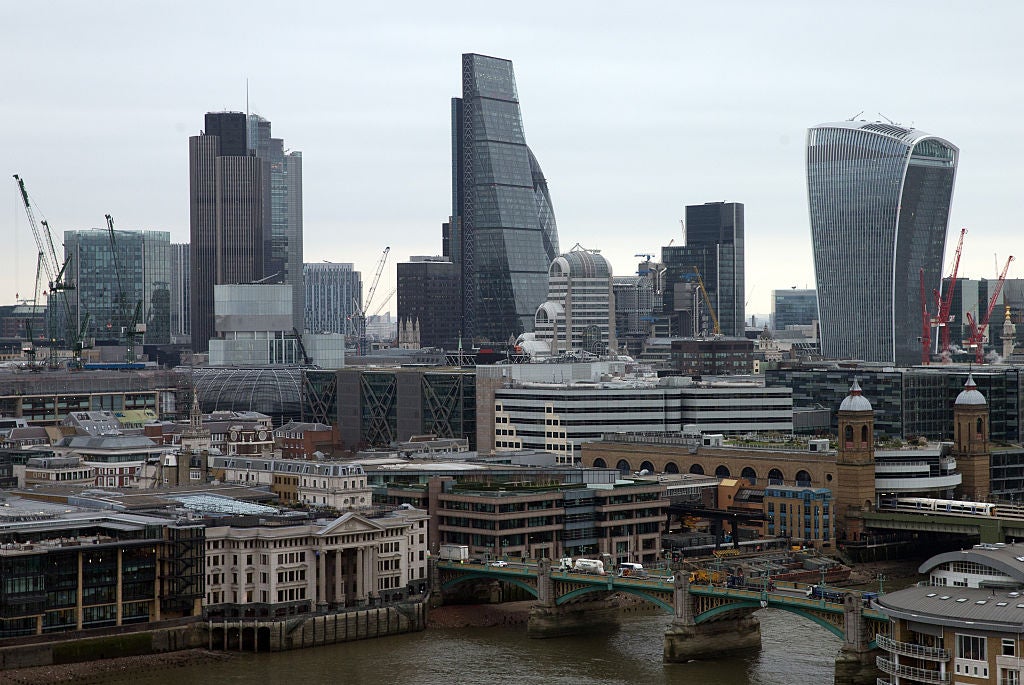Brexit: Not just Bundesbank that should fear regulation-lite City of London after UK leaves the EU
Financial services is an industry that attracts sharks, and could cause damage beyond these shores if the UK tries to follow the lead of Singapore

Pah. Well of course the Germans would say that the UK won’t be the gateway to Europe after Brexit and then go on to issue dire warnings about the dangers of freeing the City of London from the shackles of its Euro-chains.
They’ll be the losers as the good ship Britannia steams alongside Donald Trump’s aircraft carrier into a glorious Anglo Saxon de-regulated future with their financial titans standing proud over all.
That is how I imagine the average Brexiteer would respond to the reported comments of Bundesbank executive board member Andreas Dombret at a meeting of German businesses and banks fixed up by the Boston Consulting Group.
Mr Dombret is to have said that even if banking rules were equivalent, the UK would still be miles away from the single market. No kidding. And that London’s role as the gateway to Europe will end. No kidding (x2).
However, he also made a very important point, namely that it would be a profoundly dangerous move for the UK to attempt to become Europe’s offshore Singapore by slashing tax and regulation.
There is a very real danger of that happening, indeed Prime Minister Theresa May has talked about the UK becoming an enormous tax haven if Europe doesn’t play nice. No doubt cuts to regulation would follow. Insurance companies have already been buttonholing anyone who cares to listen to them in an attempt to get Europe’s Solvency 2 regulations scrapped.
No one with any sense will, and the problem they have at the moment is that, while I might not always agree with him, few would argue that the boss of the Financial Conduct Authority, Andrew Bailey, is anything other than sensible.
The trouble is, the Government has proved quite willing to elbow aside sensible watchdogs who become troublesome, particularly when they perform their roles in a way that the Chancellor of the day finds inconvenient. That is how Mr Bailey got his job in the first place. His predecessor Martin Wheatley was a mite too hawkish for the City’s taste. So the former occupant of Number 11 Downing Street, George Osborne, opted not to renew his contract.
We should have learned by now that treating the City with a light touch is a dangerous road down which to travel. It was tried by the old Financial Services Authority, and guess which of the West’s big economies took the biggest hit from the financial crisis? Clue: It wasn’t Germany.
Unfortunately, we have become conditioned to business types, and their favourite politicos, growling about red tape and regulation as if they were spawned from the pit of economic hell.
However, those who are willing to think about things, rather than simply relying on in the sort of knee jerk reactions Brexiteers like to indulge in, will be aware that lots of regulations are very necessary.
The ban on lead in petrol, a substance that when I was young was allowed to poison the brains of children living near major roads, is a regulation. The right to return shoddy goods to where you bought them from comes via a regulation The requirement to admit health inspectors to the restaurant that gave you norovirus comes from a regulation. The list goes on, and on, and on.
Financial services is a business that seems to attract sharks like a fishing boat with a hold full of chum. It therefore needs rules more than most. The financial crisis should have taught us that. The crises and the scandals that went before it should have taught us that.
They also should have taught us that, however much we might like to sit on our island gazing into our collective navels, this country is part of an interconnected world.
A rule-lite UK has the potential to spread its problems around that world if things go wrong. That’s not something to be proud of, by the way, or to be used as a threat. But it is what the UK appears set upon doing and it's not just the Bundesbank that has cause to be concerned. This affects all of us.
Join our commenting forum
Join thought-provoking conversations, follow other Independent readers and see their replies
Comments